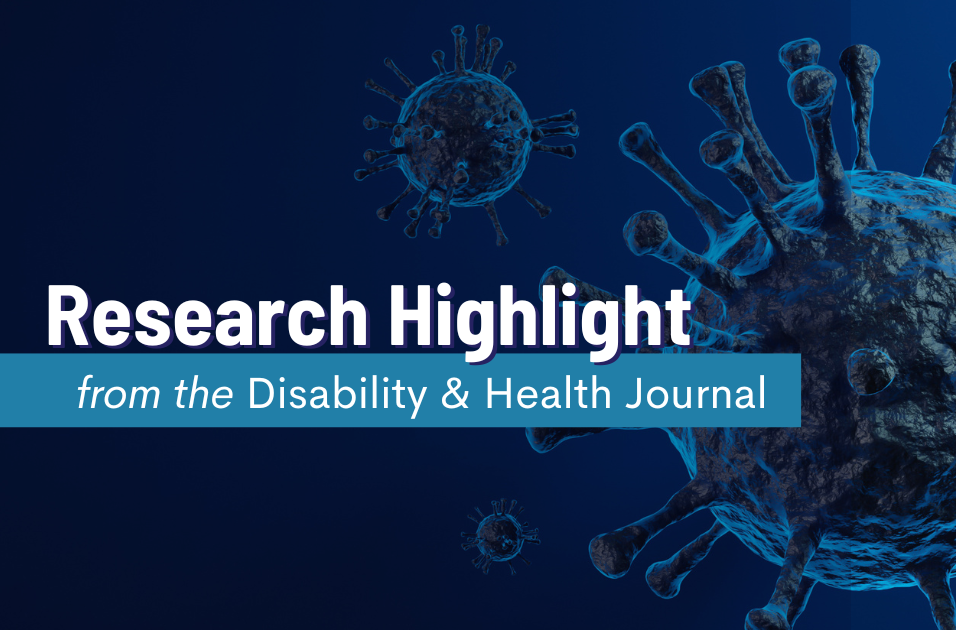How did COVID-19 affect the basic needs of people with disabilities? A new study in the Disability & Health Journal looks at life in Vietnam from 2021 to 2022. It compared the experiences of people with disabilities to those who are not disabled.
This plain language summary is part of a new series sharing highlights from the Disability and Health Journal.
Why was this study done?
The COVID-19 pandemic has affected life for people around the world. It has affected our health, social lives, and economic situations. It has increased the difficulty of achieving health and safety for many people. Many people were already struggling to meet their needs. Many people may have an even harder time meeting them after COVID.
How was this study done?
Researchers used a telephone survey to contact people with and without disabilities. These people lived in the three largest cities in Vietnam. Calls were made during a two-month period (from December 2021 to January 2022). The survey asked about how people were living and meeting their basic needs. It asked about things like:
- Employment access, and whether they had jobs
- The finances in their household, and ability to pay bills
- Access to social programs that support with the cost of living
What did this study show?
During the COVID pandemic, people with disabilities:
- were more likely to stop working than people without disabilities.
- were more likely to have reduced income and earnings
- had more severe financial impacts
- had greater food insecurity
- had more challenges if they had informal work (like through family businesses or self-employment)
Households with people with disabilities had access to short-term supports during COVID-19. This included financial and food support. They were less likely to receive long-term social assistance from the government.
What can we learn from this study?
Public health crises like COVID-19 require inclusive responses to support people with disabilities. Many have unique needs that affect their livelihoods. Social programs are an important way to help people survive public health crises.
Learn more about this study
The COVID-19 pandemic has caused long-term crises globally. Fighting the pandemic had an effect on people’s jobs and livelihoods. This increased hunger and starvation. It also interrupted education and increased poverty.
Vietnam was one of the first countries affected by COVID-19. It had an efficient health response. At first they reduced the total number of COVID-19 cases. They responded to the first outbreak quickly. Their government released a public health response plan. They used strict measures to control the virus. These included:
- COVID-19 testing
- isolation requirements
- school closures
- public gathering bans
- A national lockdown to stop the spread of the virus
The pandemic response in Vietnam involved government and private institutions. Their response was successful at first. However, they had a surge of cases when new strains of the virus emerged. The pandemic had major social and economic effects.
Vietnam passed national disability legislation in 2010. This law promoted the rights of people with disabilities. Even with this law, people with disabilities faced greater challenges than people without. They experienced challenges accessing health, education, employment, and social life. When the pandemic started, people disabilities were affected in many areas of life. Many could not meet their healthcare needs. Accessing medication, rehabilitation, check-ups and assistive technology became difficult. Many struggled to access food and personal protective equipment like masks. Many also had their hours at work cut, or their wages reduced.
The government offered programs to buffer people from these effects. This included expansion of unemployment benefits to informal and self-employed workers. Other programs included subsidies for electricity. People with COVID-19 also qualified for free treatment and financial support. In July 2021, the value of all social assistance programs was increased. This included disability programs.
We know that people with disabilities in every country had a harder time during the pandemic. We need more research on:
- the experience of people with disabilities in low and middle-income settings.
- the experiences of different disabled people (of different genders, or types of work)
Future studies can help us understand how social programs can prevent the financial effects of public health crises. Better programs can combat social exclusion and poverty during times of shock.
Limitations of this study:
- Most people with disabilities included in this study had disability certifications. Many people do not have their disability certification. This would grant them access to certain social programs. This study may have overestimated how much financial assistance people received.
- Phone interviews tend to have lower response rates than in-person surveys. This may have excluded certain people from participating. Fewer people from the deaf and low hearing community may have participated. People in poverty may not have had the technology needed to participate as well.
- The survey used is the Washington Group Short Set. This survey does not include all people with disabilities (ex: psychosocial disability). However, some people may have self-identified as disabled to be included in the survey.
Read the full article open access.
